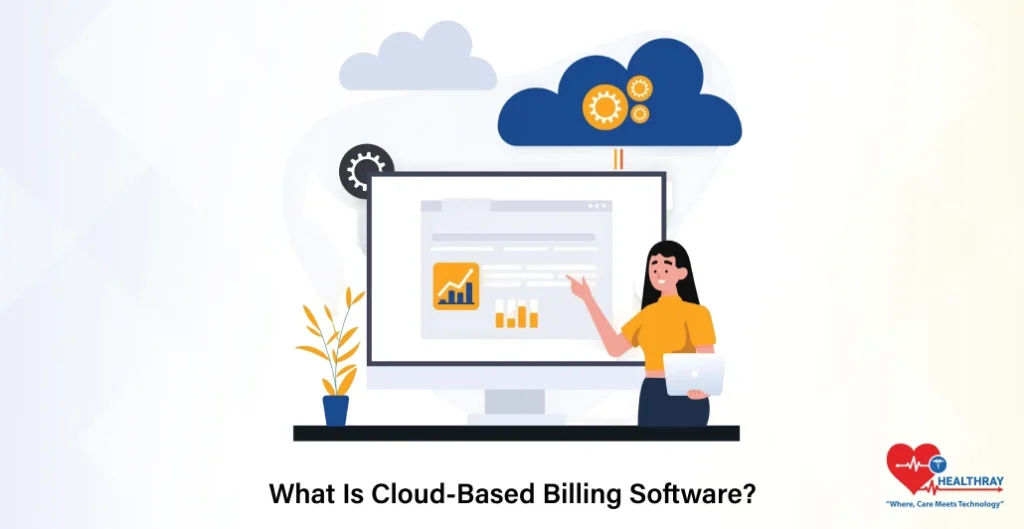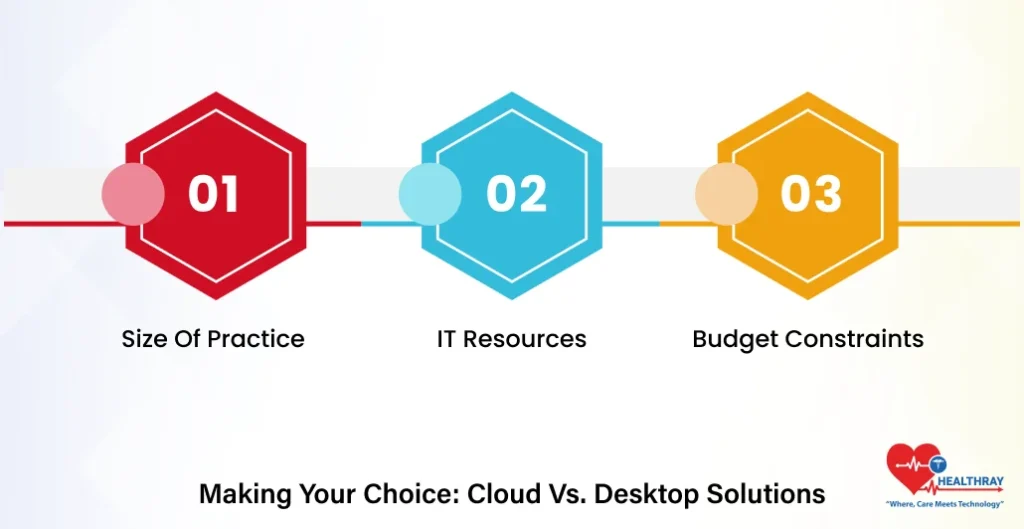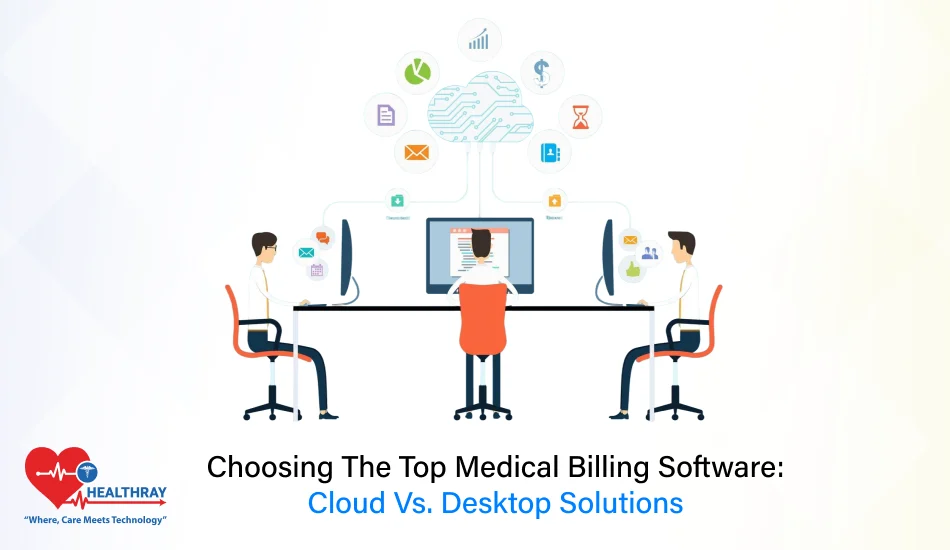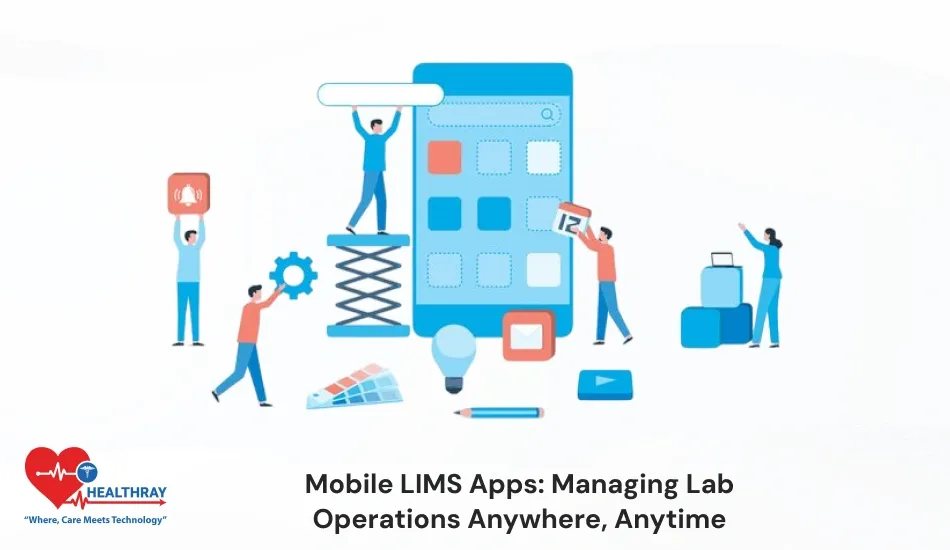Summary
Selecting the appropriate medical billing software is essential for any organization during the digital transformation phase of the healthcare sector. Now, providers have two options: cloud-based solutions, which provide flexibility and remote access and desktop/on-premise systems that provide data control and customization options. Both have pros and cons on the basis of cost, accessibility, security and IT management. In this blog, I will discuss the major difference between cloud and desktop medical billing software to help you decide which solution is the best fit for your clinics and hospitals. Let’s begin!!!!!
Introduction
In the fast-changing healthcare world, medical billing software plays an important role. As we know, medical billing is a time-consuming process and is more prone to human errors such as claim denials, delayed reimbursements, and revenue loss. Further, medical billing software is adept at maintaining financial health and operational efficiency for hospitals, clinics and private practices.
Medical billing software automates patient data entry, claim submission, payment posting and denial management. Advanced billing systems these days include patient portals, which make it simple and transparent for patients to view their bills and make payments online. Further, with medical billing software, doctors can focus on patient care. Plus, this software works according to compliance and coding standards like HIPAA rules, which minimizes audits and penalty risks in the system.
Right and accurate billing is the backbone of revenue cycles of healthcare organizations. It not only helps healthcare organizations maintain their financial stability but also supports the delivery of quality patient care by streamlining administrative processes.
What is Cloud-Based Billing Software?

Cloud-based billing software is a platform that is hosted on remote servers and vendors manage it. Furthermore, if you are an authorized user, you can access cloud medical billing software from any location. Additionally, this system is scalable, requires less initial investment and provides automatic updates along with strong security features.
Advantages of Cloud Solutions
Let’s find out:
Accessibility and Versatility
With cloud billing software, users can access data from anywhere, whether it’s a clinic, hospitals branch or home. Furthermore, cloud medical billing software can easily manage multiple locations and allow real-time coordination among doctors, billing staff, and administrators.
Cost Effectiveness
Cloud-based billing software eliminates the need for purchasing expensive hardware and on-premise servers. Furthermore, the subscription-based model reduces the cost of IT support and maintenance. In addition to streamlining billing operations, it also supports related functions such as provider credentialing services, enabling healthcare providers to manage compliance, operational workflows, and budgets more efficiently.
Automatic Upgrades and Maintenance
In a cloud-based billing system all updates, security patches, and data backups are automatically handled by vendors. Furthermore, with medical billing software, hospitals no longer need to stress about maintaining the system manually. Additionally, the hospital management system reduces the workloads of the IT team.
Enhanced Security and Compliance
Cloud-billing software uses advanced encryption, HIPAA compliance, and disaster recovery protocols to keep the patient data safe and secure. Furthermore, billing systems provide strong protection from unauthorized access and data breaches.
Better Collaboration
Cloud-based billing software provides access to multiple users at one time. Further, the medical billing system improves coordination among doctors, billing staff, and administrators. Additionally, billing software makes the workflows smooth and minimizes delays in the system.
Challenges of Cloud-Based Billing Software
Let’s check out:
Internet Dependency
In comparison with traditional hospital software, cloud-based billing systems completely rely on internet connections. Furthermore, if your internet connection goes slow or down, then hospital operation will get temporarily interrupted. Thus, it causes delay in updates and patient data access. Therefore, a reliable internet connection is important for smooth and uninterrupted healthcare workflows.
Step towards digital era with our healthcare solution
Revamp your hospital facilities and embrace change for better healthcare management. Ease in managing and organizing large medical datasets leads to effective analysis. Seize the opportunity now!
Recurring Cost
Cloud-based billing software is based on subscription models where hospitals have to pay for monthly and yearly fees. Furthermore, the initial investment may be low but in the long term, it may cost you more than the traditional one-time software. Additionally, cloud-based hospital billing systems keep the system up-to-date with regular maintenance and updates.
Data Control and Privacy Concerns
In cloud-based billing software, patient data is stored on remote servers of vendors. Further, hospitals feel hesitant, as they don’t have full control over their data. Furthermore, they are anxious about data leakage and risks associated with health information and unauthorized access. However, reputable vendors ensure data security through advanced encryption and HIPAA compliance.
What is Desktop-Based Medical Billing Software?
Desktop medical billing software is a system that is installed on local servers and computers of hospitals and clinics. Furthermore, this setup provides complete control over data storage, security, and customization. Additionally, this type of setup is best for organizations that prefer to manage data internally.
Advantages of Desktop Medical Billing
Let’s check out:
Data Ownership
With a desktop medical billing system, hospitals get full control over patient data and security policies. Further, desktop billing software provides a strong option for data privacy and compliance.
Customization
Desktop billing software can be easily customized according to the specific workflow of hospitals. Furthermore, medical expense tracking software helps hospitals improve their operations and efficacy.
No Ongoing Subscription
In desktop medical billing software, there is no recurring subscription cost after initial purchase. Additionally, there are charges for maintenance or occasional upgrades post-purchase.
Challenges of Desktop Medical Billing Software
Let’s check out:
High Upfront Costs
Desktop-based billing systems require significant capital investment that includes hardware, licenses, and installation costs. Furthermore, it is a heavy initial burden for small clinics.
Maintenance and Upgrades
Desktop billing systems require a dedicated IT support team for proper maintenance and upgrades. Furthermore, hospitals need to pay regular attention to updates, backups, and security patches.
Making Your Choice: Cloud vs. Desktop Solutions

Let’s find out:
Size of practice
For small practices, cloud-based billing software is easy to use and cost-effective. Furthermore, larger medical practices require full control of their data. Therefore, it is preferable to use on-premise systems.
IT Resources
Desktop billing software is the best fit for organizations where proficient IT staff is available. Furthermore, clinics with a small IT staff should prefer cloud-based billing systems to easily manage the operations.
Budget Constraints
Cloud billing systems are cheaper in initial investment, but in the long term, recurring subscription costs get accumulated. Furthermore, desktop billing systems have higher initial costs; however, long-term expenses are less.
Conclusion
The decision between cloud and desktop medical billing software depends on your practice’s size, budget, IT capacity, and security preferences. Furthermore, cloud-based options are increasingly popular due to their convenience, scalability, and cost efficiency, particularly for small to mid-sized practices. Further, Desktop solutions, however, still appeal to practices requiring maximum control over data and customizations.
I hope the above blog provides you valuable insights on top medical billing software and how it helps hospitals decide which solution is the best fit for your clinics and hospitals.




